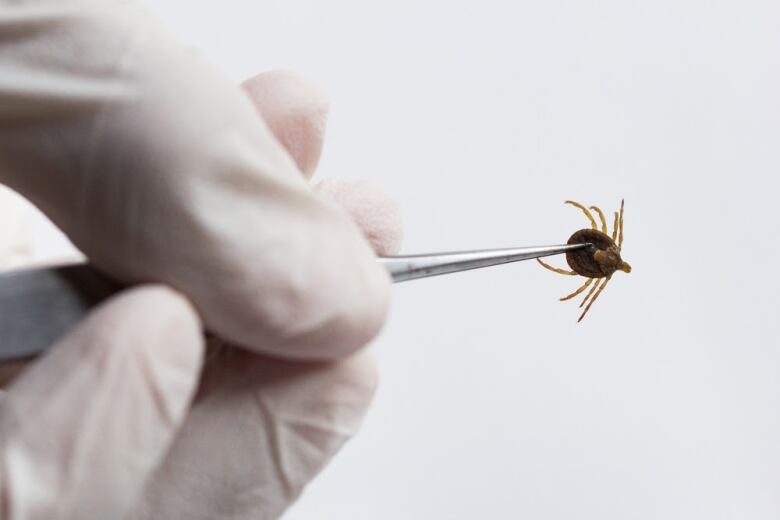Vet says concerns about Lyme disease in dogs 'overblown'
Dr. Ted Morris says preventing tick bites is more useful than vaccinating against Lyme disease

A Toronto veterinarian says there's no need for dog owners to "freak out" about ticksbut it is important to learn about ways to prevent caninesfrom getting bitten by the tiny black-legged bugs.
Dr. Ted Morris, a veterinarian at Bloor Animal Hospital, said vaccinating dogs againstLyme diseaseisnot really necessary and concerns about the illness are "a little bit overblown."
"Everybody is freaking out about ticks," Morris told Metro Morning on Tuesday.

Morris said the animal hospital used to see onedog with a tick peryear, but it has been seeing a dog with a tick on a weekly basis in the past two years. In 2016, the animal hospital had its first case of Lyme disease in a dog.
It's hard to find a tick bite on a dog and vets usually find the actual ticks on dogs instead, he said. If ticks have been feeding for a day or two, the ticks become engorged and are easier to locate. "People just want us to take them off," he said.
Morris said it's important for dog owners to keep in mind that 90 to 95 per cent of dogs that get infected withthe Lyme disease bacterium from a tick bite do not get sick because they get rid of it on their own.
Treatment for Lyme disease in dogs is a common antibiotic and"fairly straightforward," he said. Symptoms include lameness.

He said the vaccine is about "80 per cent effective."
With a disease, he said vets ask the following questions: "How serious is thisillness? How challenging and expensive it is to treat? And is the vaccine going to make a big difference or are we really just doing it for peace of mind?"
Tick prevention measures include topical creams, tick collars, and medication taken every three months called Bravecto.
"There's a lot of options depending on where your dog goes in the world," he said.
"You want something that has broad spectrum coverage. You want something that will protect them."
Ticks are tiny arachnids that can spread Lymedisease through bites. They're often found in long grass near wooded areas. Vets tell dog owners to avoidtall grass or wooded areas where ticks usually hide to prevent dogs from getting bitten.
According to the city,the blacklegged tick(Ixodes scapularis), is the only type of tick in Ontario that can transmitBorrelia burgdorferi, the bacteria that causesLymedisease.
With files from Metro Morning












_(720p).jpg)


 OFFICIAL HD MUSIC VIDEO.jpg)
.jpg)



























































































